5 Best Chinese Stocks to Buy
Chinese stocks are back in favor after a tough stretch. Nimble investors might find opportunity among these top-rated names.

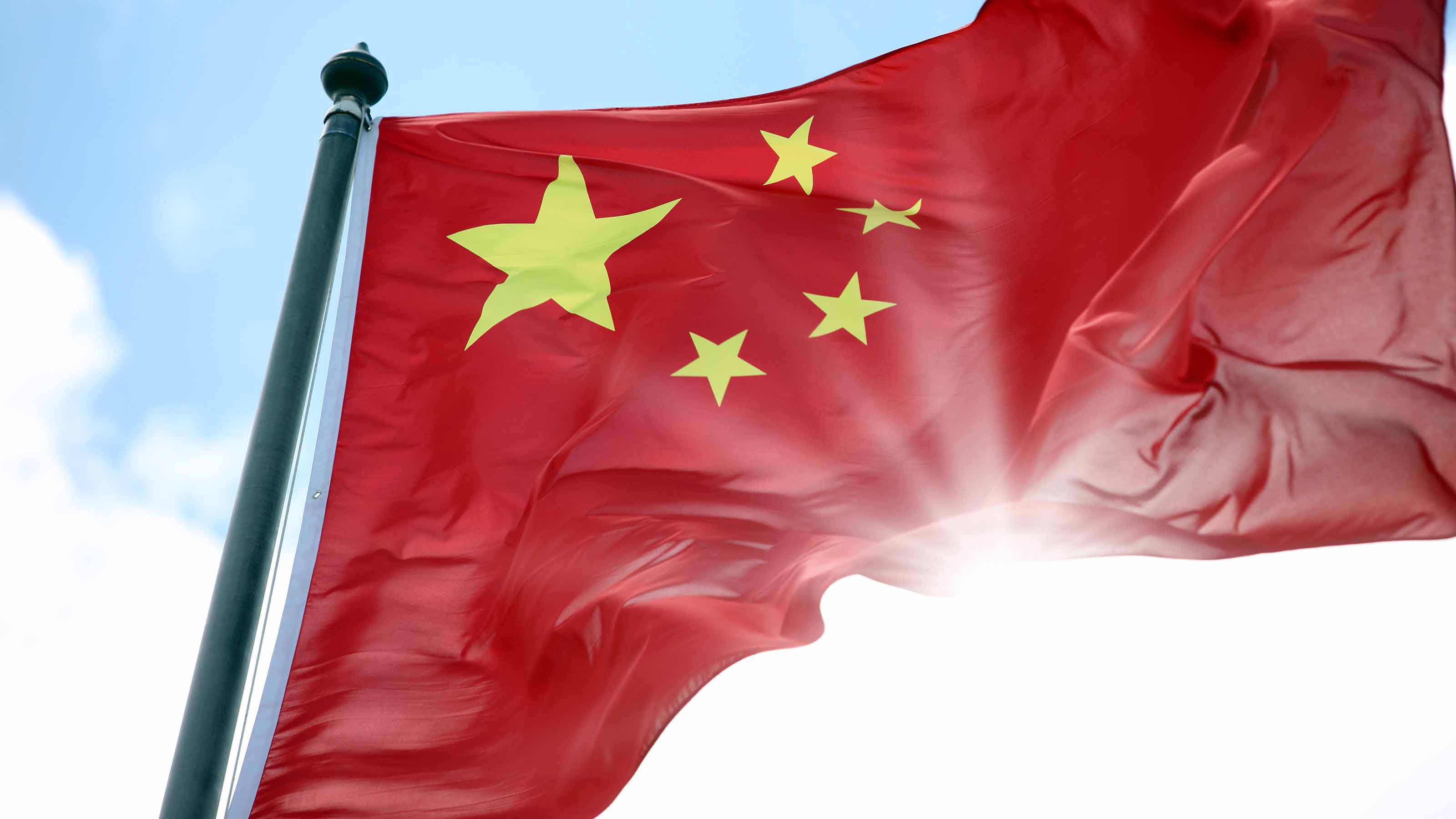
Profit and prosper with the best of Kiplinger's advice on investing, taxes, retirement, personal finance and much more. Delivered daily. Enter your email in the box and click Sign Me Up.
You are now subscribed
Your newsletter sign-up was successful
Want to add more newsletters?

Delivered daily
Kiplinger Today
Profit and prosper with the best of Kiplinger's advice on investing, taxes, retirement, personal finance and much more delivered daily. Smart money moves start here.

Sent five days a week
Kiplinger A Step Ahead
Get practical help to make better financial decisions in your everyday life, from spending to savings on top deals.

Delivered daily
Kiplinger Closing Bell
Get today's biggest financial and investing headlines delivered to your inbox every day the U.S. stock market is open.

Sent twice a week
Kiplinger Adviser Intel
Financial pros across the country share best practices and fresh tactics to preserve and grow your wealth.

Delivered weekly
Kiplinger Tax Tips
Trim your federal and state tax bills with practical tax-planning and tax-cutting strategies.

Sent twice a week
Kiplinger Retirement Tips
Your twice-a-week guide to planning and enjoying a financially secure and richly rewarding retirement

Sent bimonthly.
Kiplinger Adviser Angle
Insights for advisers, wealth managers and other financial professionals.

Sent twice a week
Kiplinger Investing Weekly
Your twice-a-week roundup of promising stocks, funds, companies and industries you should consider, ones you should avoid, and why.

Sent weekly for six weeks
Kiplinger Invest for Retirement
Your step-by-step six-part series on how to invest for retirement, from devising a successful strategy to exactly which investments to choose.
President Donald Trump's tariff moves in 2025 have put a major scare into investors who own domestic stocks. But while the U.S. stock market has struggled to start the year, investors committed to remaining in the market are finding opportunities overseas amid a broader rotation out of large-cap tech stocks.
China is near the top of the list of potential bright spots so far this year.
Institute of International Finance data for February show net inflows of $11.2 billion into Chinese stocks, the highest amount since September and the second-largest over the past 24 months.
Risk, reward and the best Chinese stocks to buy
There are many reasons why folks consider China "uninvestable," including "autocracy risk." And this has some saying the latest data is nothing more than a head fake tempting investors down a rabbit hole.
China also faces a potential trade war with the U.S. And the domestic economy struggled for most of 2024.
Investors should certainly consider these downsides of a "grass is always greener" trade before adding Chinese stocks to their portfolio.
The other argument is that the bull market is over there and we're entering a period of sustained outperformance for Chinese stocks vs U.S. stocks.
Here are five China stocks to buy now to hold for 2025 and beyond.
Data is as of March 27.
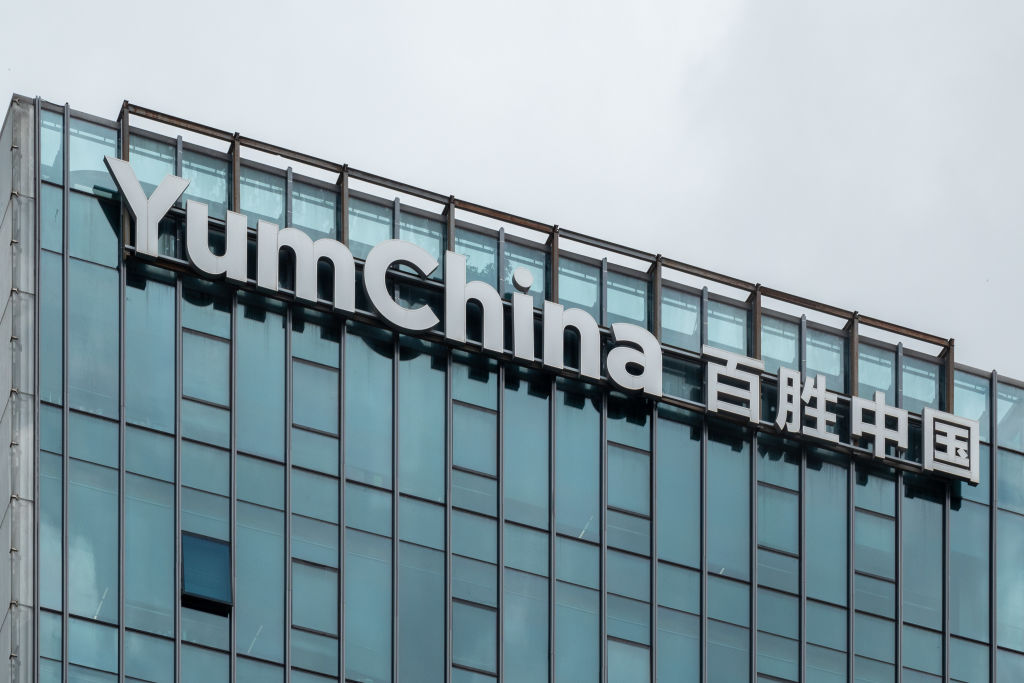
Yum China Holdings
- Industry: Restaurants
- Market value: $19.6 billion
- Dividend yield: 1.8%
Yum China Holdings (YUMC, $52.30) had to be one of the most disappointing Chinese stocks over the past decade.
The Yum! Brands (YUM) spinoff hit the U.S. markets in November 2016 with all sorts of promise after its separation from its U.S. parent. Shareholders received one share in YUMC for every share held in YUM.
YUM has generated a total return of 203% since the spinoff, YUMC 116%. And only recently has YUMC's performance begun to live up to its promise.
The business itself, however, is more than sustainable. It continues to grow, with American brands such as KFC, Pizza Hut and Taco Bell along with local brands such as Little Sheep and Huang Ji Huang.
Yum China Holdings finished 2024 with 16,395 stores in the Middle Kingdom after opening 1,751 net new stores, including 512 by franchisees. Yum China is on track to meet its goal of 20,000 stores by 2026.
Given this growth, it plans to return $4.5 billion to shareholders through 2026. Yum China repurchased 31.3 million shares in 2024 and has $1.3 billion remaining on its buyback authorization.
Following a 50% increase in its quarterly dividend, YUMC currently yields 1.8%.
With the Chinese government looking to stimulate economic growth, investors can reasonably expect Yum China's results to improve in the years ahead.
Of the 26 analysts who cover the stock, 25 rate it Buy and one rates it Hold. The average 12-month target price is $59.40, implying upside of 13.6% from its recent closing price.
YUMC is an excellent long-term hold for investors looking for China stocks.
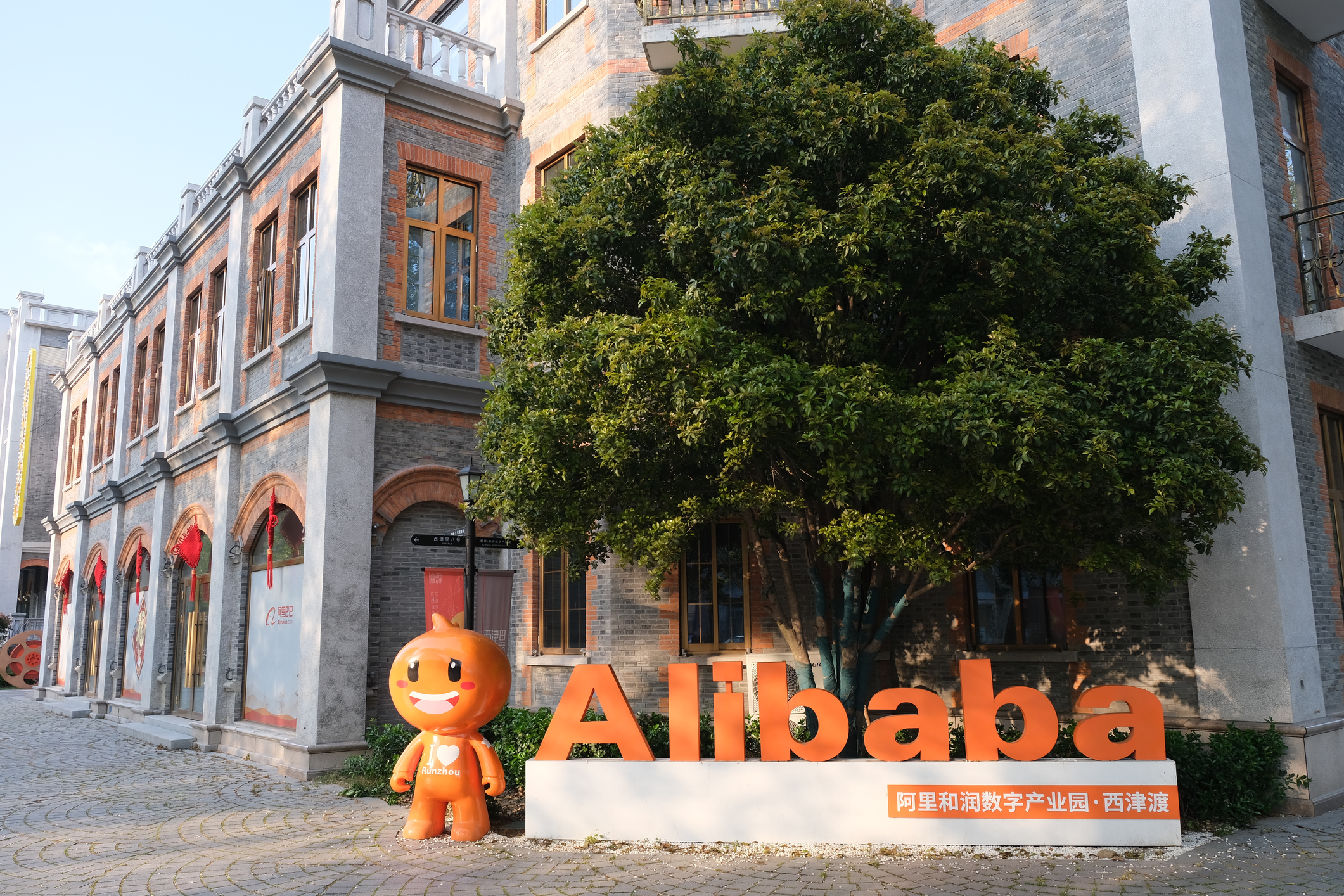
Alibaba Group
- Industry: Internet retail
- Market value: $314.1 billion
- Dividend yield: 1.5%
Alibaba Group (BABA, $132.24) stock has been in the wilderness for years. The Chinese e-commerce giant traded at more than $300 per share in October 2020 but two years later had fallen below $65.
Its various businesses were doing well until the Chinese government cracked down on it and other large companies regulators accused of monopolistic practices. Alibaba spent three years in the proverbial "rectification" penalty box before being let out in August 2024.
BABA is up almost 70% since its release.
The stock received additional support in late January when the Chinese conglomerate said its updated AI model outperforms DeepSeek and other competitors.
With countries like Canada reconsidering trade with China due to the Trump administration's tariff war and President Xi Jinping's move closer to the country's entrepreneurial class, Alibaba's business growth could accelerate domestically and internationally.
Alibaba will spend $53 billion on its AI and cloud infrastructure over the next three years. This is more than the company has spent in this area over the past decade. It wouldn't be making that kind of investment if it wasn't confident of China's economic future.
Alibaba's Cloud Intelligence Group generated third-quarter revenue of $4.22 billion, up 7% year over year. The three-year investment should deliver double-digit revenue growth in the years ahead.
Of the 41 analysts who cover BABA, 38 rate it Buy and one rates it Hold. The average 12-month target price is $161.95. That suggests upside of 22.5% from here.
BABA is another solid option for U.S. investors seeking exposure to China stocks.

Li Auto
- Industry: Auto manufacturers
- Market value: $28.6 billion
- Dividend yield: 0.0%
Will Li Auto (LI, $26.67) and the other Chinese electric vehicle manufacturers benefit as Elon Musk and Tesla (TSLA) face public backlash?
It's more than possible if the head of the Department of Government Efficiency (DOGE) doesn't return to his job running the American EV maker.
Tesla's sales are falling at an accelerated pace in places like China and Norway, where EV demand remains high. That suggests companies like Li can step into the breach and grab market share from the world's largest EV company.
Tesla's monthly sales in China have fallen year over year for five consecutive months and were down 49% in February to their lowest monthly amount since July 2022.
Li delivered 26,263 vehicles in February, nearly 30% higher than a year ago and has delivered 1.19 million vehicles since launching production in November 2019.
It now had a 3.7% share of China's new energy vehicle (NEV) market in February. NEVs include battery electric vehicles, plug-in hybrid vehicles and fuel-cell electric vehicles.
Its market share was one basis point less than that of Tesla China, putting it in eighth place.
But Li is well positioned to surpass Musk's company in the all-important market. That makes it one of the most interesting Chinese stocks you can buy.
Of the 27 analysts who cover LI stock, 22 rate it Buy and five rate it Hold. The average 12-month target price is $32.89. That's 23% higher than its recent price.

Futu Holdings
- Industry: Auto manufacturers
- Market value: $28.6 billion
- Dividend yield: 0.0%
Futu Holdings (FUTU, $107.51) is a Hong Kong-based fintech company that provides digital financial services to clients in seven countries, including Singapore, the U.S., Australia and Canada.
Futu operates through two proprietary digital platforms: Futubull and moomoo.
The company went public in March 2019, selling 7.5 million American Depositary Receipts (ADRs) at $12 a share. One ADR represents eight Class A common shares.
FUTU is up sixfold since its initial public offering (IPO) and more than 100% over the past year.
In the six years it's been a public company, Futu's compound annual growth rate for revenue and operating earnings are 60.2% and 79.3%, respectively.
It finished 2024 with $1.75 billion in revenue, $852.5 million in operating income and total client assets of $96.6 billion from 2.4 million clients.
"We continue to witness strong paying client growth and are guiding for 800 thousand net new paying clients in 2025," said CEO Leaf Hua Li, who founded Futu in 2011 and has now established a legitimate competitor in global wealth management.
That's why it's one of the top China stocks to buy now.
Of the 14 analysts who cover FUTU stock, 12 rate it Buy and two rate it hold. The average 12-month price target is $143.72, upside of 33.7% from its recent closing price.
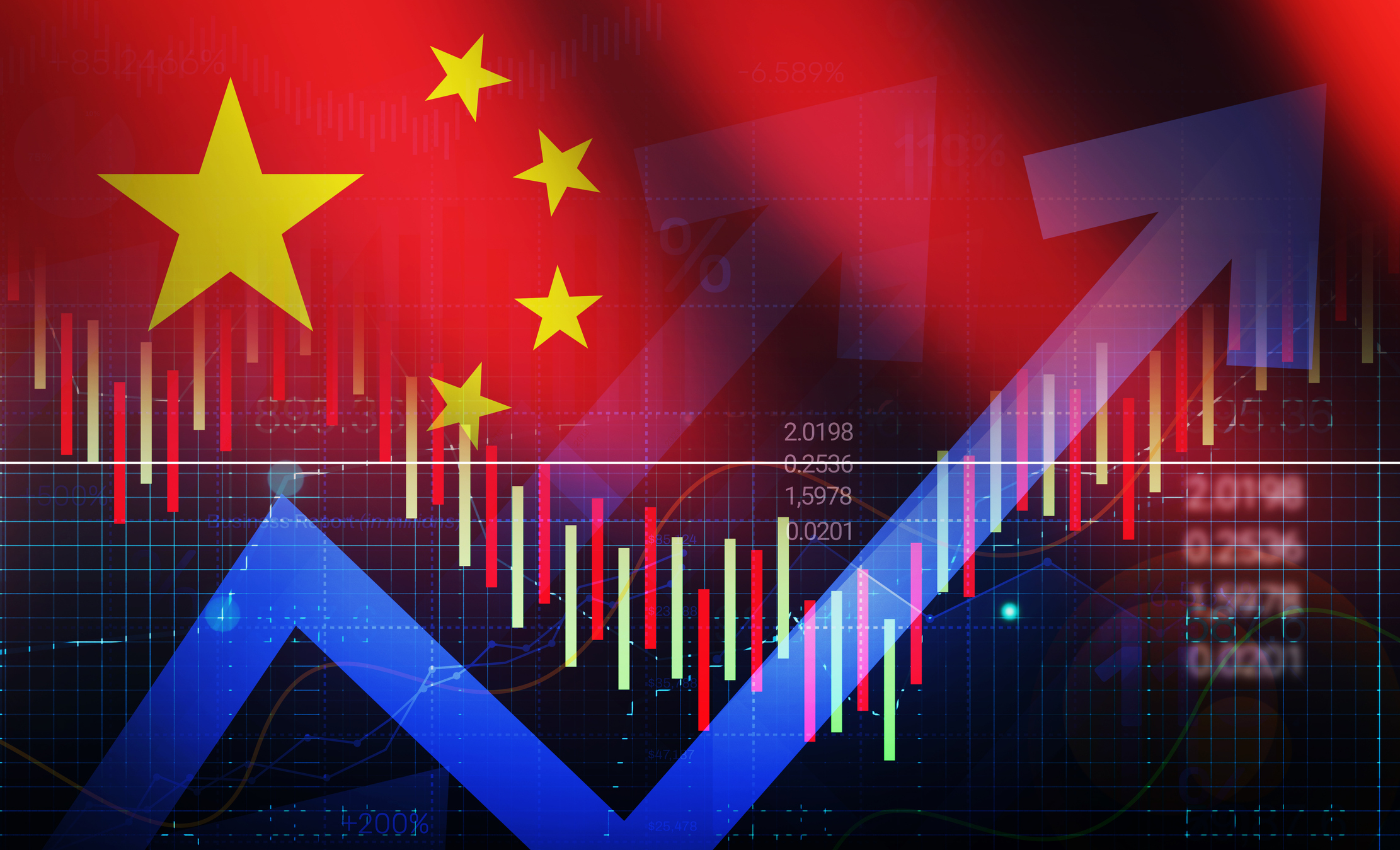
iShares MSCI China A ETF
- Assets under management: $219.6 million
- Dividend yield: 2.5%
- Expense ratio: 0.60%, or $60 annually for every $10,000 invested
For investors who don't want to hand-pick the Chinese stocks they think will outperform U.S. stocks in 2025, it makes sense to invest in a basket of stocks held by an ETF such as the iShares MSCI China A ETF (CNYA, $28.16).
CNYA is designed by iShares to track the performance of the MSCI China A Inclusion Index.
The index is a collection of companies based in the People's Republic of China (PRC) whose A shares trade on the Shanghai Stock Exchange and the Shenzhen Stock Exchange. These A shares are accessible through the Shanghai-Hong Kong Stock Connect or the Shenzhen-Hong Kong Stock Connect program.
These shares trade domestically in China under the local currency, the renminbi (RMB), also known as the yuan. One U.S. dollar buys 7.26 Chinese RMB.
CNYA, which launched in June 2016, has approximately $220 million in net assets under management. Its portfolio includes 405 holdings. The top 10 stocks account for just 20.1%.
The top three sectors by weight are financial stocks (23%), technology (17%) and industrial stocks (16%). The only other sector with a double-digit weighting is consumer staples stocks (12%).
At a reasonable 0.60% in annual management fees, CNYA is an efficient way to bet on China's outperformance in 2025.
And Morningstar rates CNYA four stars.
Related content
Profit and prosper with the best of Kiplinger's advice on investing, taxes, retirement, personal finance and much more. Delivered daily. Enter your email in the box and click Sign Me Up.

Will has written professionally for investment and finance publications in both the U.S. and Canada since 2004. A native of Toronto, Canada, his sole objective is to help people become better and more informed investors. Fascinated by how companies make money, he's a keen student of business history. Married and now living in Halifax, Nova Scotia, he's also got an interest in equity and debt crowdfunding.
-
 Ask the Tax Editor: Federal Income Tax Deductions
Ask the Tax Editor: Federal Income Tax DeductionsAsk the Editor In this week's Ask the Editor Q&A, Joy Taylor answers questions on federal income tax deductions
-
 States With No-Fault Car Insurance Laws (and How No-Fault Car Insurance Works)
States With No-Fault Car Insurance Laws (and How No-Fault Car Insurance Works)A breakdown of the confusing rules around no-fault car insurance in every state where it exists.
-
 Why Picking a Retirement Age Feels Impossible (and How to Finally Decide)
Why Picking a Retirement Age Feels Impossible (and How to Finally Decide)Struggling with picking a date? Experts explain how to get out of your head and retire on your own terms.
-
 Dow Dives 878 Points on Trump's China Warning: Stock Market Today
Dow Dives 878 Points on Trump's China Warning: Stock Market TodayThe main indexes erased early gains after President Trump said China is becoming "hostile" and threatened to cancel a meeting with President Xi.
-
 Dow Hits New Intraday High: Stock Market Today
Dow Hits New Intraday High: Stock Market TodayValue-hunters with big stakes in a particular component kept one of the main U.S. equity indexes in positive territory.
-
 Stock Market Today: Dow Dives 748 Points as UnitedHealth Sells Off
Stock Market Today: Dow Dives 748 Points as UnitedHealth Sells OffA services-sector contraction and a worse-than-anticipated consumer sentiment reading sent bulls scrambling Friday.
-
 Stock Market Today: Growth Concerns Drag on Stocks
Stock Market Today: Growth Concerns Drag on StocksForward-looking commentary from a major retailer outweighed its backward-looking results as all three major equity indexes retreated on Thursday.
-
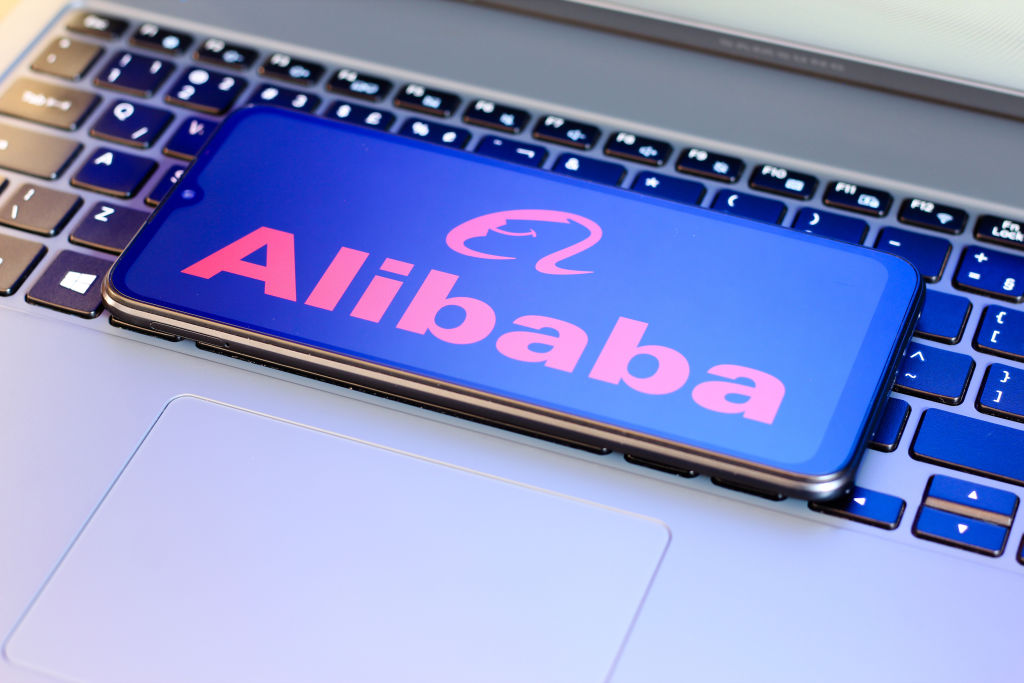 Why Alibaba Stock Is Soaring After Earnings
Why Alibaba Stock Is Soaring After EarningsAlibaba stock is higher Thursday after the China-based e-commerce platform beat expectations for its fourth quarter. Here's what you need to know.
-
 The 24 Cheapest Places To Retire in the US
The 24 Cheapest Places To Retire in the USWhen you're trying to balance a fixed income with an enjoyable retirement, the cost of living is a crucial factor to consider. Is your city the best?
-

 Stock Market Today: Dow Hits New High After Upbeat Inflation Data
Stock Market Today: Dow Hits New High After Upbeat Inflation DataThe Fed's preferred inflation gauge continues to cool. Markets shift focus to next week's jobs report.
-
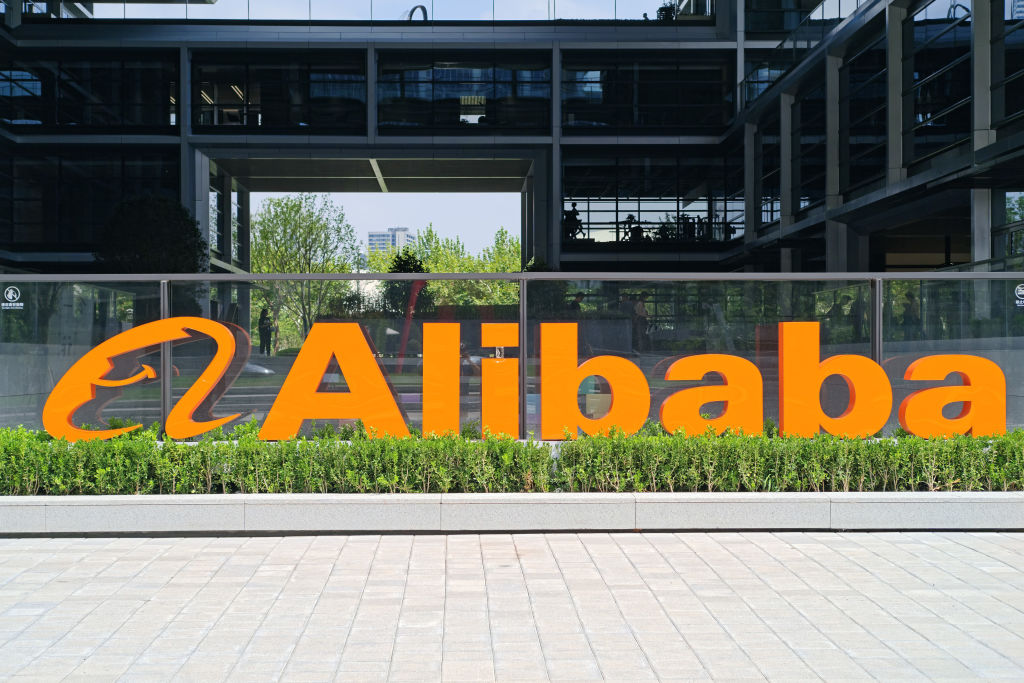 Alibaba Stock's Set to End September With a Bang. Here's Why
Alibaba Stock's Set to End September With a Bang. Here's WhyAlibaba stock is headed toward its best month since December 2022 and Wall Street sees even more upside ahead. Here's what you need to know.
